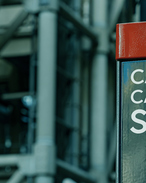"CityView is keen to complete the feasibility study to quantify the technical and commercial aspects of North Matanda,” chief executive Mark Smyth said.
The 1187 square kilometre Matanda block is in the northern part of Cameroon’s Douala/Kribi-Campo basin covering the northern half of the Wouri estuary and surrounding onshore areas.
The block is partly onshore and partly shallow offshore.
Condensate was discovered in two wells drilled to 3000m in the permit by Gulf Oil USA during the 1980s.
But Gulf was looking for a giant oilfield similar to that found in the Niger delta and relinquished the permit.
Based on the wells, seismic and testing, Gulf assessed the field as having 1P reserves 60 million barrels of condensate and a 3P upside of 300MMbbl, Smyth said.
“Condensate prices from this region historically trade at a premium of US$3 to the price of Brent crude oil,” he said.
“West African condensate prices currently exceed US$75 per barrel.
“This project has the potential to be extremely profitable for all of the joint venture partners and we intend to bring it to fruition as quickly as possible.
“The first critical hurdle is to complete a feasibility study on the project.”
Smyth said Conrad Maher, the recently appointed Chairman of the Advisory Board, was in Paris with a team of experts to start the review and gather the Gulf Oil USA data as the first stage of the feasibility study.
The scope of the feasibility study will include certifying gas and condensate reserves; designing plant and infrastructure; estimating capital and operating cost; financial modelling; tackling government approval processes; negotiating off-take agreements for gas and condensate; deciding on financing strategy; and early award of the engineering package to a contractor.






















